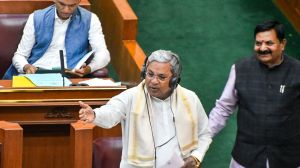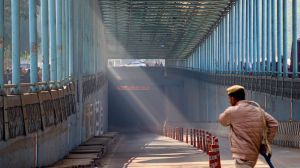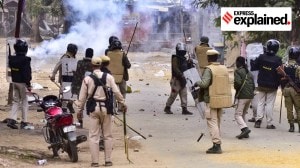RTI is good
The editorial in the latest issue of Organiser, while decrying the move to rope in an MNC to check the efficacy of RTI implementation...

The editorial in the latest issue of Organiser, while decrying the move to rope in an MNC to check the efficacy of RTI implementation, admits that the legislation has helped the aam aadmi. 8220;8230; Recently a man in Orissa got relief from the court after he proved that the forest department was unduly delaying and denying him permission to cut a certain number of trees on his land 8212; to raise money for his son8217;s education. The department had given similar sanctions on a larger scale for industrial houses and business propositions. This information he obtained by repeated petitions under the RTI8230; Even in a limited way, RTI has become an effective instrument for determined citizens to nettle the government8230; And that is why it is necessary to safeguard its efficacy and not allow the government to take back on the sly what it gave in a grand gesture, albeit grudgingly,8221; observes the leader.
The edit, however, thinks that the move to involve an MNC will only help bureaucrats. It says, 8220;By getting a survey done by an MNC, the department can cite various reasons, including the 8216;holy cow8217; of national security to deny citizens access to information locked in government files8230;8221;
False claims in Nepal
In an analysis, Arabinda Ghose says that the Maoist claims of 8216;a sweeping victory8217; in Nepal are grossly exaggerated. He says: 8220;As someone who has been following the telecasts of Nepal TV 8212; an official organ 8212; since April 10, this writer fails to finds any sweep for the Maoists8230;
8220;There were three phases of the elections for the Constituent Assembly which will have a strength of 601 members 8212; larger than the Lok Sabha of India which has 545 members including two nominated from among the Anglo-Indian community8230; The initial results which had excited many commentators in this country were for the 240 seats under the first past the post FPTP system. Of these, the Maoists have won just 120 seats, half of the total and hence one seat short of majority.8221;
Ghose goes on to say that 8220;In the same phase, voting took place also for the 335 seats under the Proportional Representation PR system, under which it will be the number of votes polled by the individual political parties that will determine the number of seats in the assembly. The latest result showed that the Maoists have polled less than 30 per cent of the votes. Their strength will thus remain at 221 or 222 among the 575 seats 8212; 240 plus 335. The remaining 26 seats will be filled by nomination by the prime minister, whoever he or she might be, but he or she will have to take into consideration the unrepresented sections of the people or those with limited representation. The nominations will not be an arbitrary matter. Supposing the Maoists get half of these 26 seats 8212; 13. Even then, their total strength in the House of 601 will be 225 at the most. How then can Prachanda choose himself as PM without a majority8230;8221;
The writer thinks India has been a loser in the process. 8220;Several Kathmandu commentators have opined that India has been the greatest loser in this election. Some have blamed the present ambassador Shiv Shankar Mukherjee for cosying up a little too demonstratively with the Maoists8230;8221;
- 01
- 02
- 03
- 04
- 05































